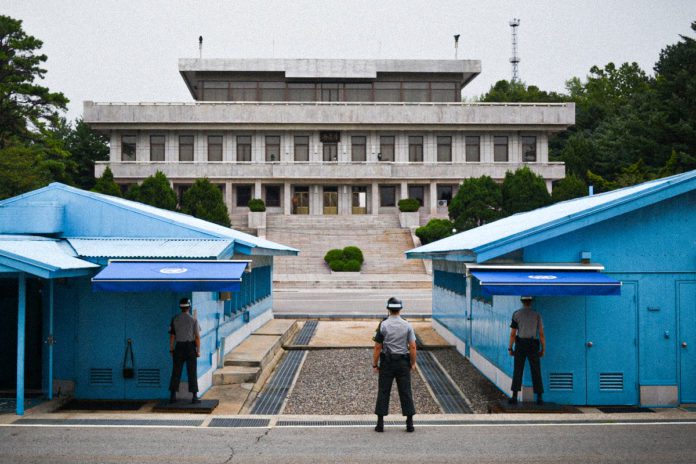By Retired Gen. Burwell Bell, former commander of the U.S. Forces Korea
Editor’s note: Following is the statement provided by Gen. Bell to the Voice of America’s Korean Service
I have always argued that an end of war declaration of any type should (indeed must) be accompanied by an end to the gravely offensive forward deployment of the majority of the North Korean military. We all know that over 70% of the ground force capability of North Korea is in relatively close proximity to the DMZ. Further, the north’s forward deployment of cannon and missile artillery which threatens Seoul directly amounts to a serious daily provocation. Therefore, an end of war declaration cannot be viewed as just a political statement, it must be viewed as a condition that requires changes to the positioning of the north Korean Army. Thus I tie together any end of war declaration together with the negotiation of a peace treaty — they cannot be separated as long as North Korean military forces directly threaten the Republic of Korea with a no-notice general offensive attack capability. Just as with a peace treaty, any end of war declaration must be accompanied with a significant demonstration of good faith by the North Koreans in moving their forward deployed military away from the DMZ to positions that no longer threaten the Republic of Korea with a surprise attack. This principle should not be compromised in any way.
With regards to the United Nations Command, its current role in maintaining the Armistice Agreement and investigating provocations and violations of the Agreement is an important role. My sense is that if an end of war declaration is made between the DPRK and the ROK (which must be accompanied with a good faith demonstration of force drawdown along the DMZ by the north), then the United Nations Command should be maintained but not under United States Command. If an end of war agreement or a peace treaty were to be put in place in Korea, the United Nations Command should transform to a neutral nation command team and more directly command and control the Neutral Nations Supervisory Commission. The Commission, under a transformed UNC, should transform to a new task and purpose to provide an inspection mechanism across both the DPRK military and the ROK / US military. This mechanism must be part of any end of war agreement that would empower the UNC/NNSC to inspect military capabilities of both sides to ensure that any end of war military force positioning agreement (for example moving North Korean forces away from the DMZ) was being implemented and agreed to.
The bottom line is three fold —
First, an end of war agreement cannot be considered simply a political statement as it would directly impact the Armistice Agreement which was a military agreement.
Second, no end of war agreement or declaration should be made without a simultaneous agreement by the north to reposition its threatening forces away from the DMZ.
Third, an end of war agreement (with the above conditions being met) would require a reconfiguration of the United Nations Command national leadership with a new mission to directly supervise a reinvigorated Neutral Nations Supervisory Commission which would have a mission to observe military dispositions in both north Korea and the ROK, and make reports to the UNC regarding troop locations and capabilities. This revised UNC / NNSC would employ Military Liaison Missions (MLMs) similar to those agreed to and used by the United States, Great Britain, France and the Soviet Union in both East and West Germany during the Cold War. If the North Koreans failed to reposition their forces away from the DMZ, a “snap back” provision to any end of war declaration must therefore include a provision to return to DMZ dispositions by United Nations Forces (now South Korean forces) as provided for in the Armistice Agreement.
Finally, any end of war declaration should have no impact whatsoever on USFK or the commitment of the United States to its mutual defense treaty with South Korea. Likewise, South Korea’s commitment to the Alliance must remain firm and resolute. And, as I have long stated, the United States should maintain leadership of Combined Forces Command as long as North Korea possesses nuclear weapons. OPCON transfer should be indefinitely postponed until full denuclearization of the Korean Peninsula is achieved.



